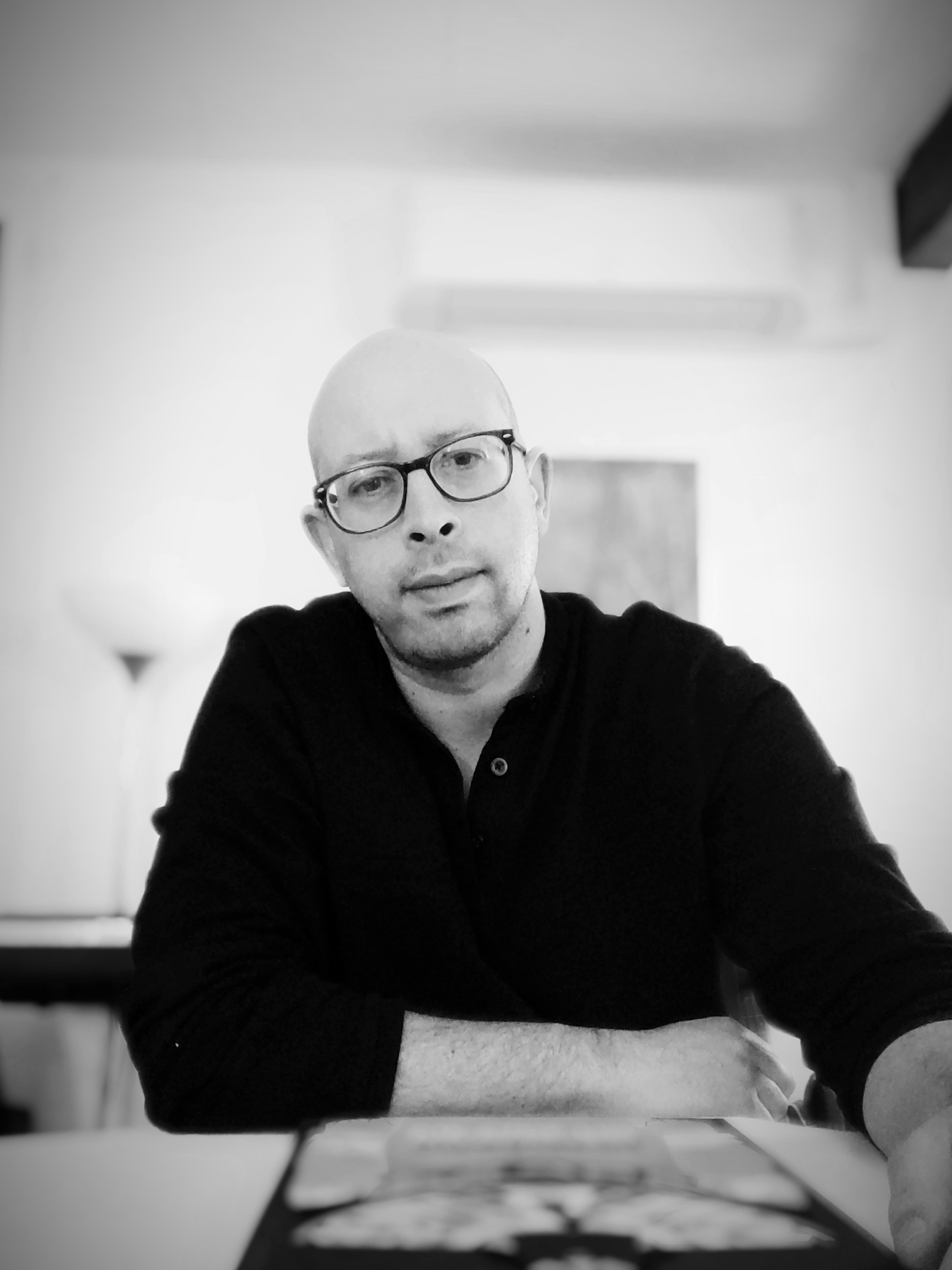Rafik Bougueroua
, b. 1975
Rafik Bougueroua was born in 1975 at the confluence of the rivers Oise and Seine. Βefore turning to philosophy and the humanities he studied science. He earned a Master’s degree in philosophy and obtained qualifications for teaching in secondary schools (certificat d’aptitude au professorat de l’enseignement du second degrés, CAPES). Since 2003, he has taught French in the Hérault and lives in Pézenas. In cooperation with Éditions Amaterra, he writes books for children, among them: Thésée d’après l’œuvre de Plutarque [Theseus according to Plutarch], 2015; Cyrano d’après “Cyrano de Bergerac” d’Edmond Rostand [Cyrano according to Cyrano de Bergerac by Edmond Rostand], 2016; La légende de Zal [The Legend of Zal], 2017; and Gilgamesh et le secret de la vie-sans-fin [Gilgamesh and the Secret of an Endless Life], 2018.
Sources:
occitanielivre.fr (Accessed: December 17, 2021).
librairie-gallimard.com (Accessed: December 17, 2021).
lp-marie-curie-villeurbanne.ent.auvergnerhonealpes.fr (Accessed: May 2, 2020).
Bio prepared by Angelina Gerus, University of Warsaw, angelina.gerus@gmail.com
Questionnaire
1. As far as I know, in your writing there are not that many references to Antiquity. What inspired you to write a book about Theseus?
— The story of Theseus was one of my favorite myths in my childhood. I had several versions of the myth (all adaptations for children), but I was particularly fond of the one by Hawthorne. Later on, Borges’s short story Asterion struck my imagination. So when my publishing house asked me to adapt the myth for young readers, I took it as a challenge to say something different than some of my favourite writers.
2. Why did you choose this character?
— I wouldn’t say I chose it, it’s a decision we made with my publisher. But I was certainly happy with this proposal, for the reasons I mentioned above.
3. And why did you turn to Plutarch as your main source?
— I had to select one source and one only to put on the cover of the book, it was required for this collection. I felt Plutarch would give me more freedom to follow my own thread in the labyrinth of the myth because he gives a number of different versions of the story. He often seems to favour more prosaic explanations, which is my preference too. For instance, it’s difficult for a modern reader to accept the divine origin of a “historical” character, so having two origins, one human and one divine, compete with each other in the mind of the reader was for me something interesting to play with.
4. How did your work with the ancient text proceed, given that the potential reader was not only a child but also a contemporary child?
— I wanted the reader to follow the story from Theseus’s point of view, knowing what he knows and even forgetting what he forgets… But apart from the obvious simplifications, when I was writing, I didn’t really have a child-reader in mind, or perhaps only myself as a child.
5. Which themes from Plutarch's text proved to be the most difficult to convey?
— I don’t remember having much trouble adapting it. Anyway, my text had to be so brief that if I encountered any difficulty, I could simply exclude it.
6. Family relations (especially the issue of the father) and the process of growing up seemed to me to be as important in the book as Theseus' story itself: did you intend to bring the protagonist closer to the readers?
— Yes. Questioning your origins, or having an absent father, are themes that many children can relate to, I think, perhaps even more so in modern families.
7. Why do you think Antiquity is still relevant today and why would it be important for contemporary children?
— Antiquity, on the one hand, teaches us about virtues and, on the other, it does not hide the cruelty of life, two aspects absent in our contemporary reality. Children will always crave mythology because it touches the essence of what makes us human.
Prepared by Angelina Gerus, University of Warsaw, angelina.gerus@gmail.com
Records in database:



